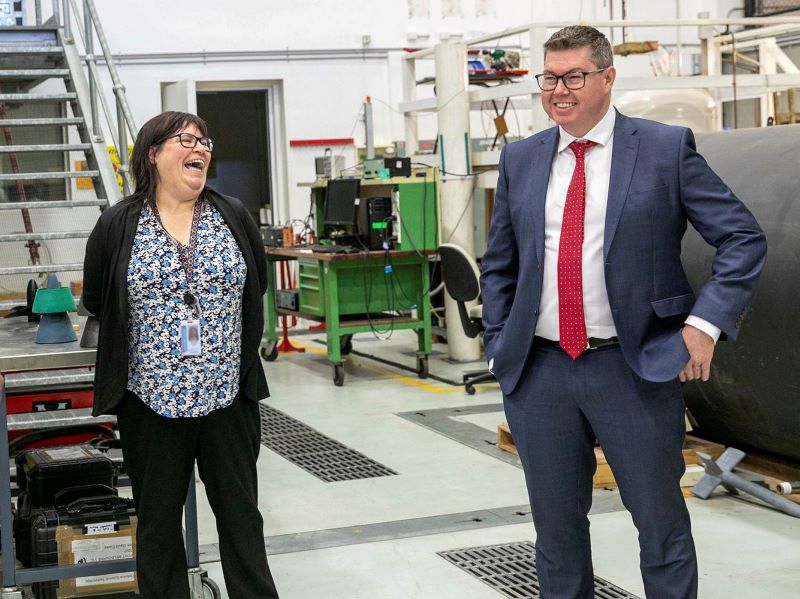Professor Emily Hilder has been appointed the permanent head of the Advanced Strategic Capabilities Accelerator, the Defence accelerator charged with supercharging defence innovation in Australia.
Professor Hilder, who has overseen the Advanced Strategic Capabilities Accelerator (ASCA) as interim head since its launch in July, was announced as the permanent head on Friday.
Prior to joining ASCA, Professor Hilder spent just over a year as chief of platforms in the Defence Science and Technology Group (DSTG) and almost two years as chief maritime division.
She has also worked at the University of South Australia’s Future Industries Institute and at the Australian Research Council Research Hub for integrated devices for end-user analysis at low levels in recent years.
Her research expertise is in analytical chemistry and materials science and has been previously named among the world’s most influential analytical scientists.

ASCA was announced in April shortly after the release of the Defence Strategic Review as a redesign of the Albanese government’s original defence innovation agency plan.
It is seeking to accelerate technology acquisition timelines in Defence while improving links with industry by using a mission-orientated approach to innovation.
ASCA, which replaced the Defence Innovation Hub and Next Generation Technologies Fund, has a budget of $3.4 billion, with $680 million of this dedicated to long-term research and development.
Since ASCA was formally launched in July, it has progressed work under three initiatives: innovation incubation, missions, and emerging and disruptive technologies.
Under its first innovation incubation challenge, ASCA has signed 11 contracts for the delivery of prototype uncrewed aerial systems (UAS).
ASCA’s flagship initiative is for the launch of three-year long missions with a clear pathway to Defence procurement.
The first missions seek solutions to two problem statements: “to penetrate and degrade advanced integrated defence systems to enable long-range strike” and to “improve the processing and synthesis of large amounts of intelligence data”.
DSTG also announced over the weekend that Suneel Randhawa would be promoted to chief of the information sciences division after acting in the role since June 2023.
Mr Randhawa has been working at DSTG since 1995. Before he began acting as the chief of the information sciences division, Mr Randhawa spent four and a half years as the research leader for cyberwarfare operations.
Do you know more? Contact James Riley via Email.

